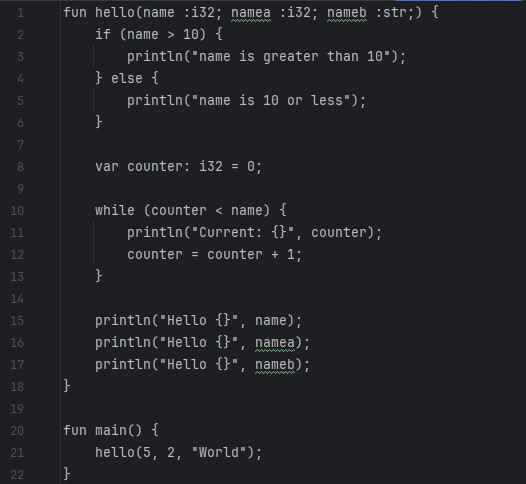Day-15: Static vs Non-Static Methods, Global vs Local Variables in Java
Static Keyword in Java: The static keyword in Java is used to create class-level variables and methods. These members are shared across all instances of the class, meaning they are class-wide and not tied to individual object instances. Static Variables (Fields) Static variables, also referred to as class variables or fields, are shared among all instances of a class. These variables are initialized only once and are common to every object of that class. Static Methods Static methods can be called without creating an instance of the class. These methods can only access other static members (variables and methods) within the class. Example code for Static and Local Variables in Java: public class Clock { // Static static String timezone = "IST"; static void setAlarm() { System.out.println(" Alarm set for 7:00 AM!"); } // Non-static - decleartion int hours; int minutes; void displayTime() { String greeting; // Local variable if (hours < 12) greeting = "Good morning!"; else if (hours < 18) greeting = "Good afternoon!"; else greeting = "Good evening!"; System.out.println(greeting + " Current time: " + hours + ":" + minutes + " " + timezone); } public static void main(String[] args) { // Static access System.out.println("Timezone: " + Clock.timezone); Clock.setAlarm(); // Time objects Clock t1 = new Clock(); t1.hours = 9; t1.minutes = 30; // Non-static calls t1.displayTime(); } } Code Output: Note: The document formatting and structure were assisted by ChatGPT. --------------------------- End of the Blog -------------------------------

Static Keyword in Java:
The static keyword in Java is used to create class-level variables and methods. These members are shared across all instances of the class, meaning they are class-wide and not tied to individual object instances.
Static Variables (Fields)
Static variables, also referred to as class variables or fields, are shared among all instances of a class. These variables are initialized only once and are common to every object of that class.
Static Methods
Static methods can be called without creating an instance of the class. These methods can only access other static members (variables and methods) within the class.
Example code for Static and Local Variables in Java:
public class Clock {
// Static
static String timezone = "IST";
static void setAlarm() {
System.out.println(" Alarm set for 7:00 AM!");
}
// Non-static - decleartion
int hours;
int minutes;
void displayTime() {
String greeting; // Local variable
if (hours < 12) greeting = "Good morning!";
else if (hours < 18) greeting = "Good afternoon!";
else greeting = "Good evening!";
System.out.println(greeting + " Current time: " + hours + ":" + minutes + " " + timezone);
}
public static void main(String[] args) {
// Static access
System.out.println("Timezone: " + Clock.timezone);
Clock.setAlarm();
// Time objects
Clock t1 = new Clock();
t1.hours = 9;
t1.minutes = 30;
// Non-static calls
t1.displayTime();
}
}
Code Output:
Note: The document formatting and structure were assisted by ChatGPT.
--------------------------- End of the Blog -------------------------------










































































































































































![[The AI Show Episode 142]: ChatGPT’s New Image Generator, Studio Ghibli Craze and Backlash, Gemini 2.5, OpenAI Academy, 4o Updates, Vibe Marketing & xAI Acquires X](https://www.marketingaiinstitute.com/hubfs/ep%20142%20cover.png)



























































































































![[DEALS] The Premium Learn to Code Certification Bundle (97% off) & Other Deals Up To 98% Off – Offers End Soon!](https://www.javacodegeeks.com/wp-content/uploads/2012/12/jcg-logo.jpg)


![From drop-out to software architect with Jason Lengstorf [Podcast #167]](https://cdn.hashnode.com/res/hashnode/image/upload/v1743796461357/f3d19cd7-e6f5-4d7c-8bfc-eb974bc8da68.png?#)






































































































.png?#)





.jpg?#)































_Christophe_Coat_Alamy.jpg?#)
 (1).webp?#)





































































































![Rapidus in Talks With Apple as It Accelerates Toward 2nm Chip Production [Report]](https://www.iclarified.com/images/news/96937/96937/96937-640.jpg)








































































































































